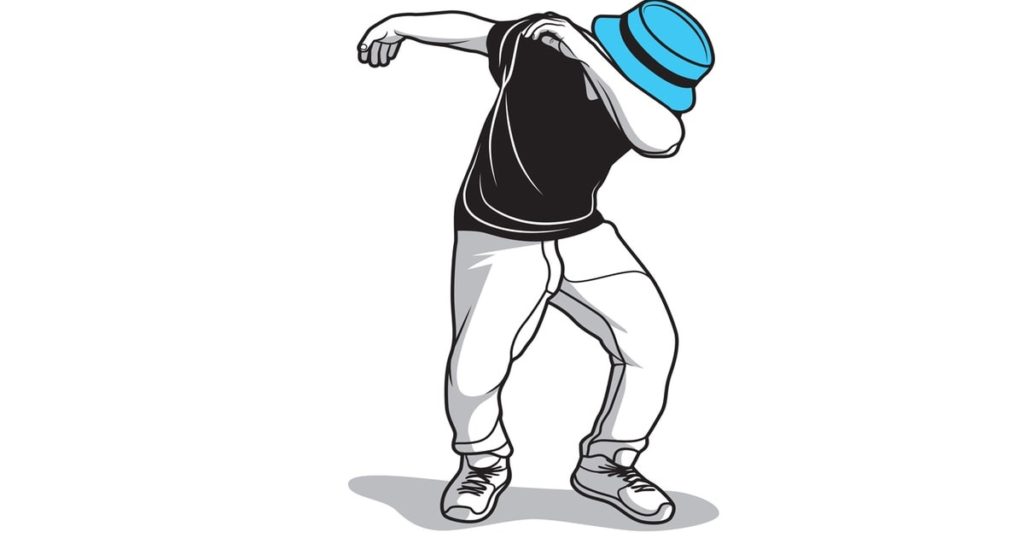An ounce of prevention is worth a pound of cure.
Benjamin Franklin.

Last time we briefly covered antioxidants and supplements. This is the main supplemental prevention list. To get the most out of this list, best foods and a supplement form with dosages are listed. If none are listed, follow the manufacturer’s recommended dosage. Cautionary notes are listed as well please heed them. All links posted are non-affiliate links. I get zero commission from them, only your unbridled joy and happiness. A few more important notes.
The Following Are For Prevention Only! Do Not Use Any While Sick Unless It Is Specifically Stated!
On with the list These common vitamins and minerals act like antioxidants in the body. Some people require more of some nutrients compared to others. Food is usually adequate, but every percentage point counts. Pick a few, use your discretion, to take on a daily basis. Do not buy the whole list and take it everyday. Less is more even during the coronavirus stay at home bore.
Vitamin C
Everyone knows this one. It helps protect from infection and is water soluble. It enhances immunity by supporting the thymus, a major center of immune function.Vitamin C also prevents glutathione, the master antioxidant from being used up.[1]
For preventative purposes, you can get adequate sources from food. If you are concerned, you may supplement, but respect and follow the rules to glean its power. During an infection use a higher dose. Harder to accomplish this with only food.
Food sources:
- Camu Camu berry(highest source)
- Broccoli
- Cabbage
- Sweet red bell peppers
- Rose hip tea
- Citrus
- Strawberries.
Preferred supplemental form: Lipospheric/liposomal ascorbic acid or buffered ascorbic acid.
- Preventative dose: 200-500mgs a day. Can go up to 2000mgs a day if needed.
- 1000 mgs is a good solid number for most people daily.
- During infection a larger dose is recommended. Start at 2000mgs and spread it throughout the day. Can increase to bowel tolerance.
CAUTION: Vitamin C in high doses can cause diarrhea.
Avoid vitamin C supplementation if you have
- Chronic kidney disease
- Hemochromatosis
- Gout
- History of kidney stone formation.
- Avoid if you take coumadin.
Birth control pill users, corticosteroid takers, and aspirin swallowers may need more than the average person.
Vitamin E
Works hand in hand with vitamin C.[2] Vitamin E reduces oxidation damage and protects thymus like vitamin C.
High food sources include
- Almonds(raw) and other nuts
- Olive oil (cold pressed)
- Avocado
- Coconut oil (cold pressed)
If supplementing, Alpha-tocopherol is the most bioactive form. D-alpha tocopherol taken with food is ideal.
Preventative dose: 200-500 IU
CAUTION: Avoid more than 1000IU a day as headaches can occur and blood clotting may be affected,
Vitamin A and Carotenoids.
Highly essential for immune function.[3] It manages mucous membranes and the skin layer. This aids in expelling or destroying the virus. Water soluble form or micellized form may be best. Preferred form is retinol as it is more bioavailable.
Best food sources:
- Organ meats (liver, kidney)
- Red meats
- Eggs
- Fish
- Butter
Preferred supplemental form: Retinol
Preventative dose: 5000-25000 IU or 1500-7500 mcg best taken alongside fats
During illness: can take 150000IU/15000mcg short term.
CAUTION: Avoid high doses for an extended period of time (several months at 50000 IUs or greater). May cause liver issues among other things.
Carotenoids do not convert very well into retinol, but may still reduce oxidative stress in body.
Best Food sources
- Green algae (spirulina, chlorella)
- Carrots
- Sweet potatoes
Preferred supplemental form: Broken cell wall Chlorella tablets
Preventative dose: 25000-300000IU daily.
CAUTION: You may turn orange from consuming high amounts. Stop consumption and it will reduce.
Vitamin B2
Helps to metabolize and breakdown other foods. It activates other B vitamins as well as vitamin E. Usually low levels of this vitamin is associated with low antibodies (B-cells remember?)
Best foods:
- Organ meats (liver, heart, kidney)
- Eggs
- Red meat
- Dairy.
This one is easy to deplete.
Vitamin B6
As with the previous one, lower levels are associated with lower antibodies. This vitamin is more like an antioxidant than the others.
Best foods:
- Organ meats
- Red meat
- Milk
- Eggs
- Seafood
- Grains
- Bananas
- Avocados
- Nuts
- Seeds
Preferred form: pyridoxal 5 phosphate
Preventative dose: 50-100 mgs
Take alone on an empty stomach for best results.
CAUTION: Long term supplement use can cause nerve damage.
Vitamin B12
A necessary vitamin for food processing. Low levels are associated with impaired immunity.[4]
Best foods:
- Meat
- Fish
- Eggs
- Milk
- Milk products like cheese
Preferred form: methycobalamin
Preventative dose: 1000-2000mcgs daily
Selenium
A mineral necessary to produce glutathione (master antioxidant).[5] It converts oxidized fats into less harmful fats (preserves antioxidant status). It helps the thyroid and removes mercury from the body reducing the burden on the body. Selenium will stimulate phagocytes, cell eaters, and T-cells to action.[6][7] A dose of 200 mcgs will increase natural killer cells.
Best foods:
- Kidney
- Fish
- Brazil nuts
Supplement Preferred form: selenomethionine or selenium picolinate.
Preventative dose:200mcgs
CAUTION: Do not take long term without health professional overviewing. Blood work may need to be done to assess adequate levels.
Zinc
VIP mineral. Zinc is necessary for superoxide dismutase, an antioxidant produced in the body. It maintains T-cells and assists the thymus (immune center).[8][9]
Best foods:
- Oysters
- Fish
- Seafood
- Meat
- Pumpkin seeds
Supplement
Preferred form: Zinc gluconate or Zinc picolinate
Preventative dose:25 mg a day
CAUTION: Do not to exceed 150 mgs a day. Can cause copper depletion and depress immune function especially above 300 mgs.
Secondary nutrients
These are heavy hitters that help and assist. The second line of defense from the antioxidant group. Some are phytochemicals, others are amino acids. All are found in food at adequate levels. These aid in prevention. Pick 1-2 to take daily. No need for all of them.
COQ10 (Coenzyme Q10)
Found in mitochondria. A strong antioxidant that may energize you. It enhances immunity by stimulating Phagocytic activity.[10]
Best foods:
- Organs (specifically heart)
- Red meat
- Fish (sardines)
- Nuts
- Cereal bran (grain husks, not the box stuff)
Supplemental preventative dose: 30-90mgs taken alongside fats for absorption.
CAUTION: Those who take blood pressure meds may need more.
Lipoic acid
Lipoic acid “recycles” other antioxidants like Vitamin C and E.[11] Unlike other antioxidants, it is water or fat soluble, take alongside either. It can also help remove heavy metals.[12]
Best foods
- Red meat
- Organs (liver kidney)
- Spinach
- Broccoli
Supplemental preventative dose: 25mg-100 mg with meals
Quercetin
A VIP antioxidant. It increases natural killer cell activity and is antimicrobial to some extent.[13]
Best foods:
- Apples(with skin)
- Onions(outer most layers)
- Black tea
- Fruits
- Veggies
- Herbs
Supplemental preventative dose: 400mg 2-3 times daily
Proanthocyanins(pycnogenol)
First found in pine tree bark, then later in grape seeds and skins. Also found in bilberry and elderberry. This has a much stronger antioxidant activity than vitamin C and E.[14]
Best foods:
- Grapes
- Blueberries
- Cranberries
- Black currants
- Apples
- Pomegranates
Preferred supplemental form: Pycnogenol
Preventative dose: 50-100 mgs
Antioxidant amino acids
The Immune system is mostly protein. Using proteins gives more building blocks to the immune army so they can flex their muscles.
Whey
Whey will boost glutathione levels.[15] It isn’t just for bodybuilders. A few caveats are present with this one.
Preferred form: Low temperature, non-acid processed (raw) Whey protein concentrate. Cow or goat is fine.
Preventative dose:30gs a day or more as needed.
CAUTION: Avoid if you have auto immune disorders. Avoid whey protein isolate or heat/acid processed whey as the immune boosting benefits are absent in isolate and destroyed by heat or acid. Start slow if you have issues with dairy. Immediately stop taking if issues occur.
Arginine
Boosts nitric oxide production and opens blood vessels. Arginine works on immune system by Increasing natural killer cell activity and stimulates the thymus gland.[16]
Best foods:
- Meat
- Fish
- Nuts
- Chocolate
Supplemental preventative dose: 500-1000g daily, works best with ornithine at half the amount of arginine.
Lysine
This amino acid reduces calcium excretion.
Best foods:
- Dairy
- Fish
- Meat
- Legumes
Supplemental preventative dose:1-2 grams daily.
Cysteine
Assists in detoxification by increasing glutathione production.[17][18]
Best food:
- Meat
- Fish
- Chicken
- Lentils
- Oats
Supplemental preferred form: N-acetyl cysteine
Preventative dose: 200-500mg a day
During illness 500-1500 mg a day.
CAUTION: Add additional copper and zinc while taking. Take alongside Vitamin C to avoid kidney stones formation.
Glutamine
Helps repair the intestinal lining and raises white blood cell count. Works in conjunction with N-acetyl cysteine to make glutathione.
Best foods: cook gently or steam to preserve glutamine content.
- Meat
- Fish
- Eggs
- Cabbage
- Brussel sprouts
Supplemental preferred form: powder extract or tablet
Preventative dose: 500-2000mg a day. 4000-8000 if exercising heavily or heavily stressed.
CAUTION: Avoid if kidney failure or liver failure/cirrhosis is present.
Glutathione
The master antioxidant. It protects cells from damage and assists in detoxification of harmful substances. Higher levels are indicative of better health. Eating methionine raises levels. This is because part of the formation of glutathione requires adequate B vitamins and glycine (derived from collagen sources) only after the body has met it’s need for methionine. The excess converts into glutathione. Vitamin C preserves glutathione for when it is really needed.
Best food:
- Liver
- Whey protein
- Asparagus
- Avocado
- Broccoli
- Cauliflower
- Bok choy
Avoid depleting substances where possible
- Alcohol
- Drugs (prescription, legal and illegal)
- Toxins
Supplemental preferred form: liposomal
Preventative dose :500mgs a day. May take more when ill.
Enzymes
Not an antioxidant, but enzymes help in immunity. Enzymes breakdown harmful toxins. They assist in tissue repair and inhibit viral replication. Enzymes are present in fermented foods, raw plant food and raw animal products (raw milk/cheese, raw egg yolks).
Cooking lowers enzyme count in foods. Lightly cooked food is better as some enzymes are intact. A raw food diet is not ideal. Excessive raw food increases mold and bacterial counts in the digestive tract. Another excellent choice for enzymes is juicing.
If juicing, drink immediately. Oxidation will lower the value you get from the juice. Choose veggie juices over fruit juices to lower the impact on blood sugar. A large enough blood sugar drop stresses the body and suppresses the immune system. Juicing is a great source for enzymes, but a poor one for phytochemicals.
Phytochemicals are secondary nutrients present in plants. Quercetin, mentioned above, is one and lycopene is another. Blending is preferred for phytochemicals since they are located in plant fiber. Lightly steam veggies then place into a blender (high speed preferred) and blend. Consume like a soup. Use ferments like a condiment, such as salsa, for antioxidants and phytochemicals.
Still need supplements for enzymes? Enzymes come in capsule form. Select phytochemicals are found in supplement form, but most are obtained from food. More on that in the next post.
Enzymatic supplement recommended: Proteolytic (Wobenzym) is best for improving immune function.
Dose: 4 tabs three times daily 1-1.5 hours before food.
The next post will cover more preventative methods you can implement to give you a wide net of protection from anything thrown (or sneezed) at you.

- https://www.ncbi.nlm.nih.gov/pubmed/8317379
- https://www.ncbi.nlm.nih.gov/pubmed/8313238
- https://www.ncbi.nlm.nih.gov/pmc/articles/PMC6164133/
- https://www.ncbi.nlm.nih.gov/pmc/articles/PMC1905232/
- https://www.ncbi.nlm.nih.gov/pmc/articles/PMC6163284/
- https://www.ncbi.nlm.nih.gov/pmc/articles/PMC4288282/
- https://www.ncbi.nlm.nih.gov/pubmed/7946899
- https://www.ncbi.nlm.nih.gov/pmc/articles/PMC185426/
- https://www.ncbi.nlm.nih.gov/pubmed/8678384
- https://www.ncbi.nlm.nih.gov/pubmed/8503942
- https://www.ncbi.nlm.nih.gov/pubmed/7649494
- https://www.ncbi.nlm.nih.gov/pubmed/28676917
- https://www.ncbi.nlm.nih.gov/pmc/articles/PMC4808895/
- https://www.ncbi.nlm.nih.gov/pmc/articles/PMC5921329/
- https://www.ncbi.nlm.nih.gov/pubmed/1782728/
- https://www.ncbi.nlm.nih.gov/pmc/articles/PMC5075284
- https://www.sciencedirect.com/science/article/abs/pii/000293439190297B
- https://www.ncbi.nlm.nih.gov/pubmed/29233792

One thought on “COVID-19 Wars part 6. Return Of The New Hope.”
Comments are closed.